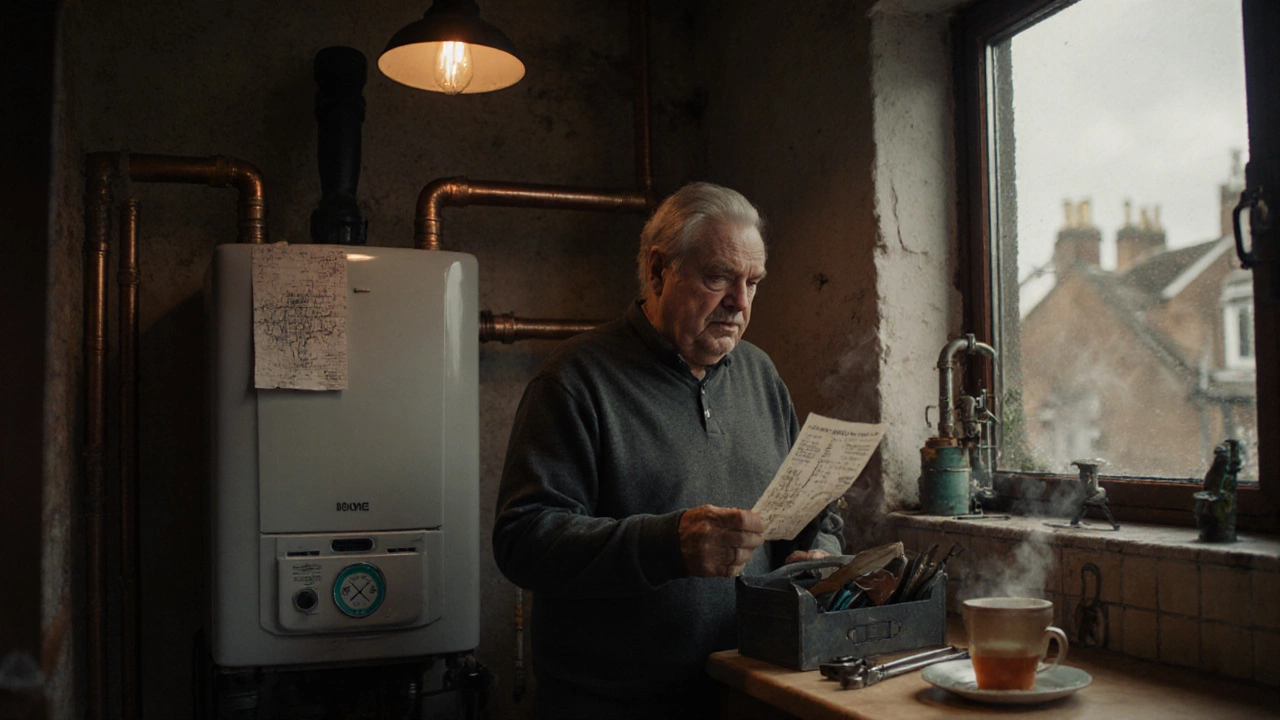20 Year Old Boiler Repair: Fix It or Replace It?
If your boiler has been around for two decades, you’re probably asking yourself whether it’s worth repairing. A 20‑year‑old unit can still work, but age brings wear, rust, and outdated parts. Before you call a technician, check the basics: is the system leaking, making strange noises, or failing to heat properly? These clues tell you if a simple fix will do or if it’s time for a new boiler.
First, look at the efficiency rating. Boilers built 20 years ago usually run at 70‑80% efficiency, while modern models push 90%+. Lower efficiency means higher energy bills. If you’ve noticed a jump in your heating costs, that’s a red flag. A quick fix—like cleaning the burner or replacing a worn gasket—can improve performance, but the savings may be modest compared to a brand‑new high‑efficiency unit.
Common Problems with Old Boilers
Older boilers tend to develop a few predictable issues:
- Corroded heat exchanger: Tiny holes cause leaks and can damage the whole system.
- Faulty pump or motor: Noise, vibration, or reduced water flow are typical signs.
- Ignition failures: Modern boilers use electronic ignition; older ones rely on pilots that can go out.
- Pressure loss: Seals and valves wear out, leading to low pressure and frequent reset cycles.
Most of these problems are fixable, but the repair cost can add up. A single heat‑exchanger replacement can run £500‑£800, while a new pump might be £150‑£250. If you’ve already spent a few hundred on earlier fixes, weigh those expenses against the price of a new boiler, typically £2,000‑£4,000 installed.
When Replacement Makes More Sense
Here are three situations where swapping out the boiler is smarter:
- Frequent breakdowns: If you’ve needed service more than twice in the past year, the machine is nearing the end of its useful life.
- Rising energy bills: A new 90%‑efficient boiler can cut heating costs by 20‑30%, often paying for itself in a few years.
- Safety concerns: Leaking carbon monoxide or major corrosion are serious hazards that only a new, certified unit can fully resolve.
When you decide to replace, look for a model with a good warranty (often 10‑15 years) and consider a servicing plan to keep it running smoothly.
Even if you keep the old boiler, regular maintenance is a must. Schedule a yearly inspection, bleed radiators to remove air pockets, and keep the area around the unit clear of dust and debris. Simple tasks like checking the pressure gauge and topping up the system water can prevent many common failures.
Bottom line: a 20‑year‑old boiler can be repaired, but the decision hinges on repair costs, efficiency loss, and how often it breaks down. Use the signs above to decide whether a quick fix will keep you warm or a fresh, efficient boiler is the smarter investment.

Repairing a 20‑Year‑Old Boiler: Is It Worth It?
Find out if fixing a 20‑year‑old boiler makes sense by comparing costs, safety, energy efficiency, and longevity.